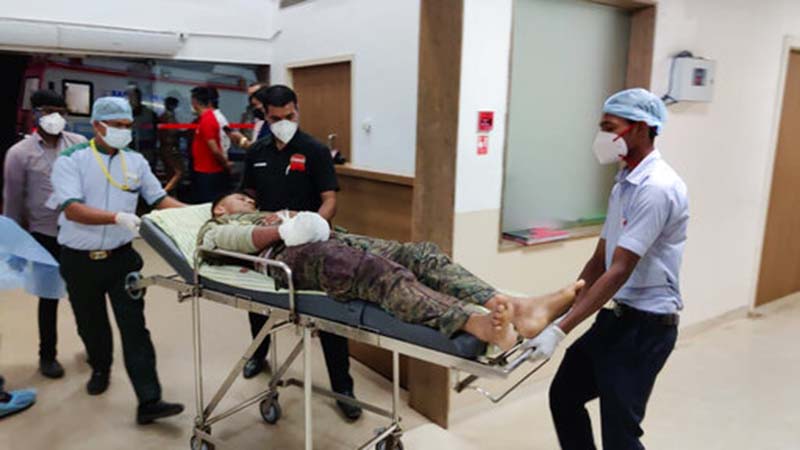

India on Sunday recovered the bodies of 20 police and paramilitary troops killed in a gunbattle with Maoist rebels a day earlier in the forests of the eastern Chhattisgarh state, police said.
The fighting erupted Saturday when Indian security forces, acting on intelligence, raided a rebel hideout in Bijapur district, police said.
This was India’s deadliest engagement with the Maoist rebels in four years. The government has said the insurgents, inspired by Chinese revolutionary leader Mao Zedong, pose the country’s most serious internal security threat.
At least 22 Indian troops were killed and 31 others wounded, with seven in critical condition, said senior police officer D.M. Awasthi. One security force member was still missing, he said. The body of one female insurgent was recovered Saturday.
Ashok Juneja, the Inspector General for anti-Maoist operations, said the rebels also suffered heavy casualties but had carried away the bodies of their slain comrades. Speaking with The Associated Press by phone, Juneja said the fleeing rebels took weapons and ammunition from slain security personnel.
Another paramilitary officer, Hemant Kumar Sahu, said some 400 rebels had gathered in the area.
Indian soldiers have been battling the Maoist rebels across several central and northern states since 1967, when the militants — also known as Naxalites — began fighting to demand more jobs, land and wealth from natural resources for the country’s poor indigenous communities.
In 2017, hundreds of rebels ambushed security forces in the rebel heartland of Chhattisgarh, killing 25 commandos. Before that year, the deadliest Maoist attack was in 2010, when rebels killed 76 soldiers in Chhattisgarh.
Last month, a roadside bomb killed at least four Indian policemen and wounded 14 in Narayanpur district of Chhattisgarh state.
Years of neglect — marked by a lack of jobs, school and health care clinics — have helped to isolate the local villagers, making them open to overtures by the rebels, who speak their tribal languages and have promised to fight for a better future with more education, jobs and access to resources, especially in Chhattisgarh, one of India’s poorest states despite its vast mineral wealth.
Rebel attacks in other Indian states are less frequent, but also sometimes result in casualties.